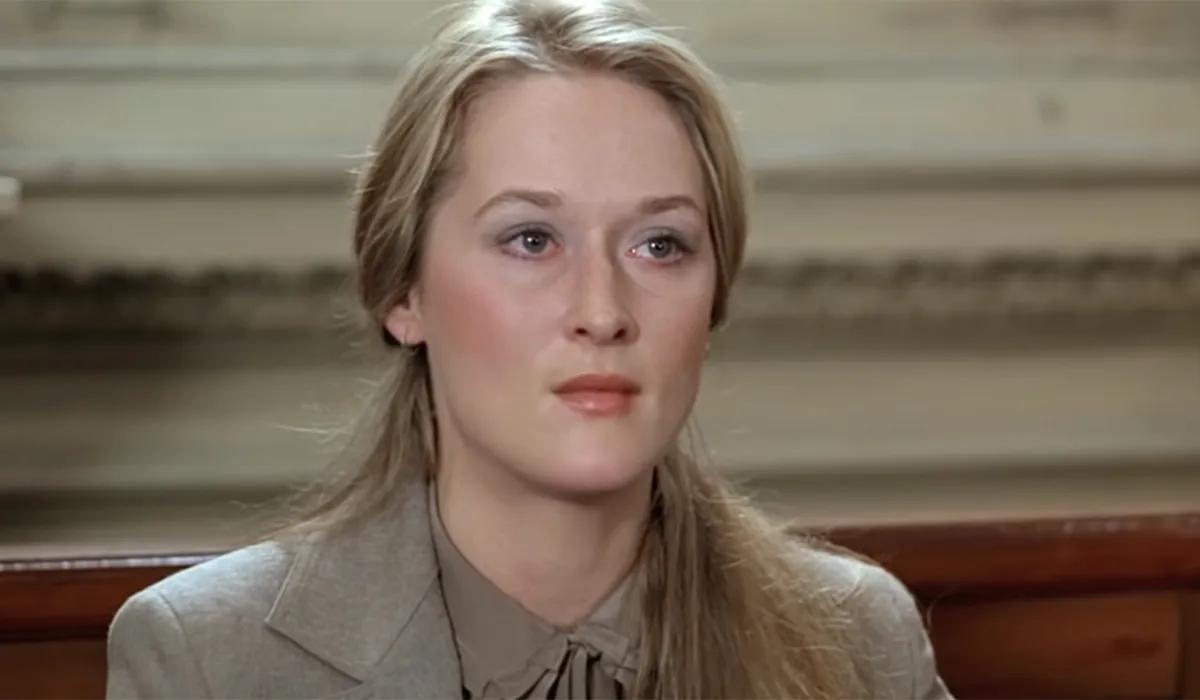
Meryl Streep: A Towering Icon of Cinema
Meryl Streep: A Towering Icon of Cinema
Meryl Streep’s name is synonymous with excellence in acting. With a career spanning over four decades, she has become a towering figure in the world of cinema, celebrated for her unparalleled talent, versatility, and commitment to her craft. Streep’s ability to disappear into any role—whether it’s a historical figure, a complex woman in crisis, or a comedic character—has earned her widespread critical acclaim, making her one of the most respected and decorated actors of all time.
Early Life and Beginnings
Born Mary Louise Streep on June 22, 1949, in Summit, New Jersey, Meryl grew up in a well-educated family. Her mother, Mary Wilkinson Streep, was a commercial artist and art editor, and her father, Harry William Streep Jr., was a pharmaceutical executive. From a young age, Meryl showed an interest in performance. She began taking voice lessons with the intention of becoming an opera singer, but her passion for acting soon took precedence.
Streep attended Vassar College, where she began to hone her acting skills, and later went on to earn a Master of Fine Arts degree from the prestigious Yale School of Drama. Her time at Yale was rigorous, but it was also where Streep’s incredible work ethic and dedication to acting were forged.
Early Career and Breakthrough in Kramer vs. Kramer
Meryl Streep’s early career was marked by roles in theater and small parts in television and film. However, it wasn’t long before she caught the attention of Hollywood. In 1978, she appeared in The Deer Hunter, a harrowing war drama that earned her her first Academy Award nomination for Best Supporting Actress. This was just the beginning of Streep’s long relationship with the Oscars.
In 1979, Streep starred in Kramer vs. Kramer, opposite Dustin Hoffman, a film that would be pivotal for her career. The role of Joanna Kramer, a woman who leaves her husband and child only to return and fight for custody, showcased Streep’s extraordinary ability to convey both vulnerability and strength. Her nuanced performance earned her the Academy Award for Best Supporting Actress, solidifying her status as a major talent in the industry.
Continued Success with Sophie’s Choice and Out of Africa
In the early 1980s, Meryl Streep continued to take on challenging and diverse roles, further proving her range as an actress. One of her most iconic performances came in 1982 with Sophie’s Choice. In this emotionally devastating film, Streep played Sophie Zawistowski, a Holocaust survivor harboring a deep and painful secret. Streep’s portrayal of Sophie, complete with a flawless Polish accent, was universally lauded and won her the Academy Award for Best Actress. The film remains one of the most heart-wrenching performances in cinematic history, with many considering it the pinnacle of her early career.
Following Sophie’s Choice, Streep starred in Out of Africa (1985), a sweeping romance set in Kenya during the early 20th century. In the film, Streep portrayed the real-life Danish writer Karen Blixen. Her performance alongside Robert Redford earned her another Academy Award nomination and further solidified her reputation as a leading actress capable of bringing depth and humanity to historical characters.
Versatility in Roles: The Devil Wears Prada, Mamma Mia!, and More
One of Meryl Streep’s most remarkable traits as an actress is her versatility. She has seamlessly transitioned from heavy dramas to lighter fare, demonstrating her ability to excel in any genre. In The Devil Wears Prada (2006), Streep delivered a career-defining performance as Miranda Priestly, the cold, demanding editor-in-chief of a high-fashion magazine. Streep’s portrayal of Miranda was both terrifying and magnetic, adding layers of complexity to what could have been a one-dimensional character. The film was a commercial hit, introducing Streep to a younger audience and earning her yet another Academy Award nomination.
In 2008, Streep surprised audiences once again by stepping into the world of musical comedy with Mamma Mia!, a film adaptation of the popular stage musical featuring the songs of ABBA. Streep’s performance as Donna Sheridan was filled with energy and charm, showcasing her ability to sing and dance with ease. The film was a box office success and became a cultural phenomenon, leading to a sequel in 2018, Mamma Mia! Here We Go Again.
Champion of Complex Female Characters
Throughout her career, Meryl Streep has gravitated toward roles that highlight the complexity of women. She has often spoken about her desire to play characters with depth, avoiding stereotypes and one-dimensional portrayals. In The Iron Lady (2011), Streep took on the role of former British Prime Minister Margaret Thatcher. Her transformation into Thatcher was nothing short of remarkable, from the physical likeness to the distinctive voice. Streep’s portrayal of Thatcher earned her another Academy Award for Best Actress, adding to her long list of accolades.
In August: Osage County (2013), Streep played Violet Weston, a matriarch whose dysfunctional family gathers after a crisis. The role was intense, emotional, and raw, allowing Streep to once again showcase her extraordinary range. Her performance was praised for its complexity, earning her yet another Academy Award nomination.
Collaborations with Renowned Directors
Over the years, Meryl Streep has worked with some of the most respected directors in the industry. Her collaborations with filmmakers such as Steven Spielberg (The Post), Mike Nichols (Silkwood and Postcards from the Edge), and Nora Ephron (Julie & Julia) have resulted in critically acclaimed films that have further cemented her legacy.
In The Post (2017), directed by Steven Spielberg, Streep portrayed Katharine Graham, the first female publisher of a major American newspaper. The film explored the role of the press in challenging government secrecy during the Vietnam War, and Streep’s performance as Graham was widely praised for its strength and intelligence. Her portrayal of a woman finding her voice in a male-dominated industry resonated deeply, especially in the context of modern-day discussions about gender equality.
Advocacy and Influence
Beyond her work on screen, Meryl Streep has used her platform to advocate for various social causes. She has been an outspoken supporter of gender equality, environmental conservation, and human rights. Streep has frequently spoken about the importance of women’s voices in Hollywood and has been a mentor to many younger actresses.
In addition to her advocacy work, Streep has also contributed to the fight for equal pay in the entertainment industry. She has used her influence to push for more opportunities for women behind the camera, including female directors, writers, and producers.
Personal Life and Legacy
Meryl Streep has managed to maintain a relatively private personal life despite her immense fame. She has been married to sculptor Don Gummer since 1978, and the couple has four children: Henry, Mamie, Grace, and Louisa. Two of her daughters, Mamie and Grace Gummer, have followed in their mother’s footsteps and pursued acting careers.
Streep’s legacy in Hollywood is undeniable. With over 21 Academy Award nominations and three wins, she holds the record for the most nominations of any actor in history. Her ability to continuously take on challenging roles, her dedication to her craft, and her commitment to telling women’s stories have made her an inspiration to generations of actors and filmmakers.
Future Projects and Enduring Impact
As of today, Meryl Streep shows no signs of slowing down. She continues to choose roles that challenge her and push the boundaries of her acting abilities. Her upcoming projects include roles in films such as Don’t Look Up and The Prom, which demonstrate her willingness to explore new genres and collaborate with innovative directors.
Meryl Streep’s impact on the entertainment industry is immeasurable. She has redefined what it means to be a leading lady in Hollywood, paving the way for actresses of all ages and backgrounds. Her performances have become cultural touchstones, and her name is now synonymous with excellence in acting. With a career that spans decades and continues to evolve, Meryl Streep remains a true icon of cinema, beloved by audiences and critics alike.




